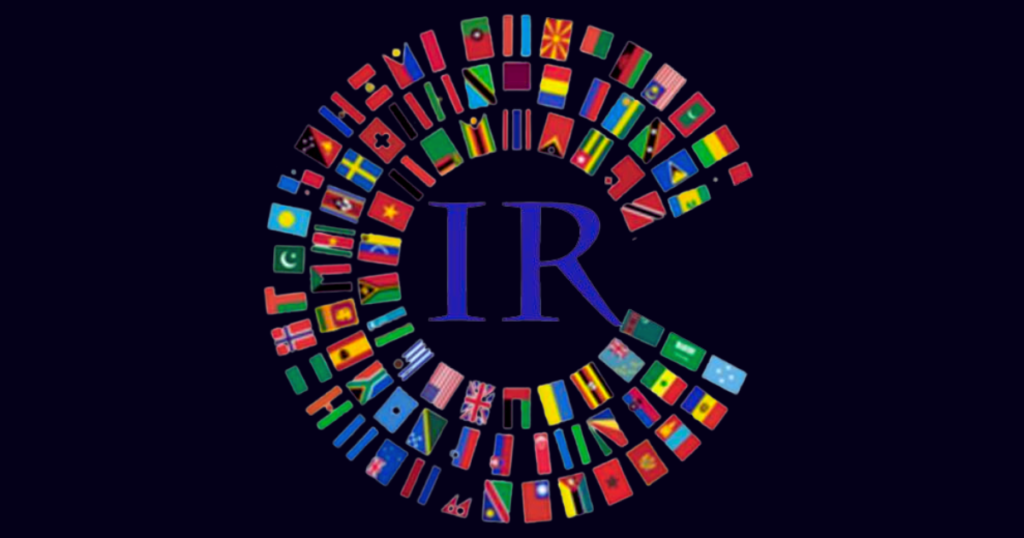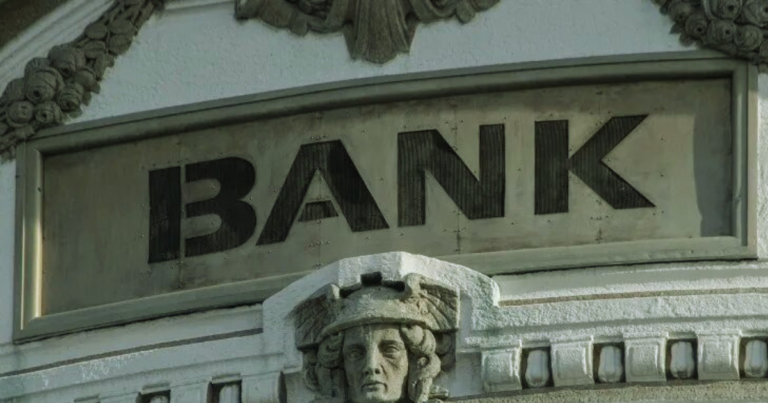Sanctions and SWIFT: How the Banking System Affects International Relations
SWIFT, or the Society for Worldwide Interbank Financial Telecommunication, is an organization that supports tools that enable reliable, efficient communication among financial institutions worldwide. Although SWIFT does not conduct transactions or retain assets, the gazillions of messages sent between institutions allow the safe and quick computation of a wide range of banking processes.

In its nearly 50-year history, SWIFT has grown to include over 11,000 institutions in over 200 nations and territories. It is an integral part of the worldwide financial environment. Because of SWIFT’s prominence in the international financial subculture, partner organizations and countries have strong incentives to maintain good standing with the structure, to avoid being disconnected from the world’s leading platform used to conduct transactions. As a result, the risk of sanction and exclusion from SWIFT can be a potent tool in international affairs.
The Organizational Structure and Prohibitions of SWIFT
SWIFT is an impartial, cooperative organization that works to benefit all of its members. As such, it takes no specific international geopolitical position. Nonetheless, the organization is supervised by the Group of Ten (G10) central banks and continues to operate under Belgian and European Union (EU) law.
Restrictions against countries or individuals can be levied by various jurisdictions worldwide, and SWIFT cannot choose which jurisdiction’s sanctions to follow. However, the framework of SWIFT’s governance requires it to follow EU regulations; if the EU imposes sanctions, SWIFT is obligated to follow those regulations.
SWIFT Sanctions in Action
The EU imposed sanctions in 2012, restricting SWIFT from offering financial communication services to specific Iranian banks. The EU delisted many of these banks, reuniting with SWIFT in early 2016.
In this case, banks that were kicked off SWIFT would be compelled to use another, far less visible alternative means of communicating with several other financial institutions worldwide. In the particular instance of Iran, the SWIFT restrictions significantly hampered international trade by making it difficult for potential clients who wanted to purchase Iranian products from outside the country to make payments.
This example exemplifies the effectiveness of SWIFT restrictions as a geopolitical incentive or deterrent. Iranian banks—and, by implication, Iranian individuals and companies—were effectively cut off from international trade due to a lack of financial transaction capacity.
SWIFT restrictions could significantly impact a country’s economy, currency strength, and the ability of individuals and businesses to conduct normal operations.
The Dangers of SWIFT Restrictions
The Iranian example also highlights potential risks or drawbacks when utilizing a SWIFT cut-off point as an international affairs tool. Whereas Iran was cut off from many facets of global commerce, the sanctions also impacted the country’s business and trade partners worldwide. The extent to which a nation is linked to the worldwide financial network determines the scope of this influence; the more connected the legitimized government is to other countries, the more significant the ripple effect.
Following Russia’s annexation of Ukraine’s Crimean Peninsula in 2014, some world leaders called for the country cut off from SWIFT. Following Russia’s invasion of Ukraine in early 2022, such calls resumed. The most significant distinction between these case studies and Iran is that Russia has a much larger economy and is much more internationally connected than Iran. Because Russia’s major exports are oil and gas, both of which are critical to Europe’s survival, the influence of SWIFT restrictions on other countries would be significant. As a result, there is less motivation to use SWIFT restrictions in this situation.
Special effects of sanctions
Despite Russia’s efforts to seek new trade opportunities, primarily in China and India, the country has been cut off from the international financial system: most of its banks have been barred from using the Swift system; the Central Bank’s foreign currency reserves have been frozen, and many foreign companies have ceased operations in the country.
Several European banks have a significant influence in the country, though their economic exposure to Russia does not appear to be capable of causing systemic damage for the time being. According to economists, it would be easier to remove Russia from the banking sector than from the energy sector because it is the European Union’s leading gas supplier, accounting for approximately 40% of exports. The real risk for banks is a deterioration in the general economy and an excessive rise in the inflation rate, which might lead to borrowers’ inability to pay their debts.
According to EIOPA, the European Insurance Authority, sanctions against Russia are unlikely to significantly impact the insurance sector because its awareness of Russian markets is less than 0.1% of the total. Risks in this sector will also primarily focus on secondary effects, particularly the so-called credit risk, which is comprised of the prospect that the creditor will not be repaid in whole or in part of the quantity loaned to the debtor, as well as the ability to settle claims on existing policies.
The circumstances in Ukraine are constantly changing, and it is impossible to predict what will happen next. The only assurance is that the conflict has reached a tipping point in international affairs, and its consequences will affect all areas of the global economy shortly.
The concern
Following Russia’s February 21 invasion of Ukraine, the United States and the European Union quickly moved to impose economic sanctions on Russia and carefully chosen state-owned financial institutions. One of the harshest measures promised to date was the exclusion of certain Russian banks from SWIFT, the Society for Worldwide Interbank Financial Telecommunication, a stable financial messaging service used to execute international bank transactions. As one of the most severe monetary fines in the armory, this restriction will cause significant economic damage to Russia, at least momentarily, at a manageable cost to the US and its allies.
The evidence
SWIFT provides stable financial communication services to implement cross-border financial transactions and payments.
SWIFT is the most widely used method for sending financial messages. It is member-owned — neither the US nor the EU directly controls SWIFT, but each can exercise control over its governing body, which is subordinate to Belgian law. The 11,000 member banks of the SWIFT network communicate using a standard language known as SWIFT messages. The SWIFT messaging system is used to settle the vast majority of individual and corporate international transactions between banks.
Russian banks have been sanctioned in connection with SWIFT.
On February 26th, the United States, European Commission, Great Britain, and Canada announced a commitment to remove selected Russian banks from the SWIFT messaging system or restrict their access to permitted transactions. The European Union announced on March 2 that 7 Russian banks would be barred, with the ban coming into effect on March 12. The European Commission is ready to add more Russian banks on short notice, raising concerns about all other Russian banks’ future access to SWIFT.
When a bank is barred from using SWIFT, it cannot transact with the world at large, at least temporarily.
Even a limited ban on Russian banks, such as the one imposed, would have an obvious and immediate economic effect on the Russian economy and businesses. It technically prevents the alienated bank from executing financial transactions with outsiders on behalf of itself and its customers, meeting obligations, or providing short-term loans for imports. This can immobilize all parts of the economy involved in international finance and trade.
Russia’s domestic payment system may also be disrupted to the point where all transactions involving any card supplied by the credit card systems (VISA, Mastercard, American Express, and so on) must go through SWIFT.
According to the Institute of International Finance (IIF), only 20–25% of Russian card and communication transactions are conducted outside SWIFT. For this purpose, Russia has already established its transaction system.
The sanctions endanger both the countries that levied them and the global economy as a whole.
Disruptions in Russia’s financial system could interrupt the energy supply to Europe and the export of raw materials to global markets, causing an additional increment in energy and food prices that are already strong because of COVID-19, supply constraints, inclement weather shocks, and supply disruptions. Prominent American and European companies that rush to expropriate their wagers on Russian operations risk incurring additional losses that may have to be written off. Targeted Russian financial institutions’ counterparts in the United States and Europe rushed to cover their exposure levels, starting to cause dollar scarcity in the global interbank market.
Except for Russian banks from SWIFT, the “nuclear option,” dubbed the “nuclear option,” risks permanently undermining global financial integration and US dollar hegemony.
When SWIFT sanctions were eased in 2014, Russia quickly developed its communication network to assist the domestic payment system. Russia also shifted its foreign reserve composition away from the US dollar and bolstered ties with the Chinese Cross-Border Interbank Payment System (CIPS). Over the last few years, China has established its own parallel worldwide messaging system as a security precaution against the greater probability of US-imposed financial restrictions. During the breakdown of the Iran nuclear deal, the European Union even started building its financial communication system, the Instrument in Support of Trade Exchanges (INSTEX).
The Russian public responded to the sanctions by conducting a bank run.
Fearing they could not use credit cards for everyday purchases, Russians rushed to ATMs for rubles and dollars and attempted to buy durable goods off the racks to safeguard their savings and buy power from the sanctions. When the SWIFT restrictions were announced, people withdrew nearly a trillion rubles (indicating 6.5% of the monetary base), following an even larger pullout on Friday, February 25th, in reaction to other restrictions. The last time Russia experienced such a significant financial disturbance was in 1998, when it reneged on its foreign debt, causing a deep crisis in its domestic financial system.
Alternative options to SWIFT restrictions
Detractors of SWIFT restrictions argue that disconnecting institutions, or even an entire country, from the communication medium, does not prevent corrupt individuals from carrying out international transactions. It simply complicates the situation. Alternatives to SWIFT exist, but they are less efficient. Following the 2014 events, Russia allegedly developed its own SWIFT alternative, presumably further limiting the utility of a SWIFT blockade.
Some commentators contend that bank restrictions could have a more significant impact instead of disconnecting institutions from SWIFT. The thinking goes that directly attacking financial institutions that function as agents for governments and wealthy individuals may have a more direct and catastrophic effect.







